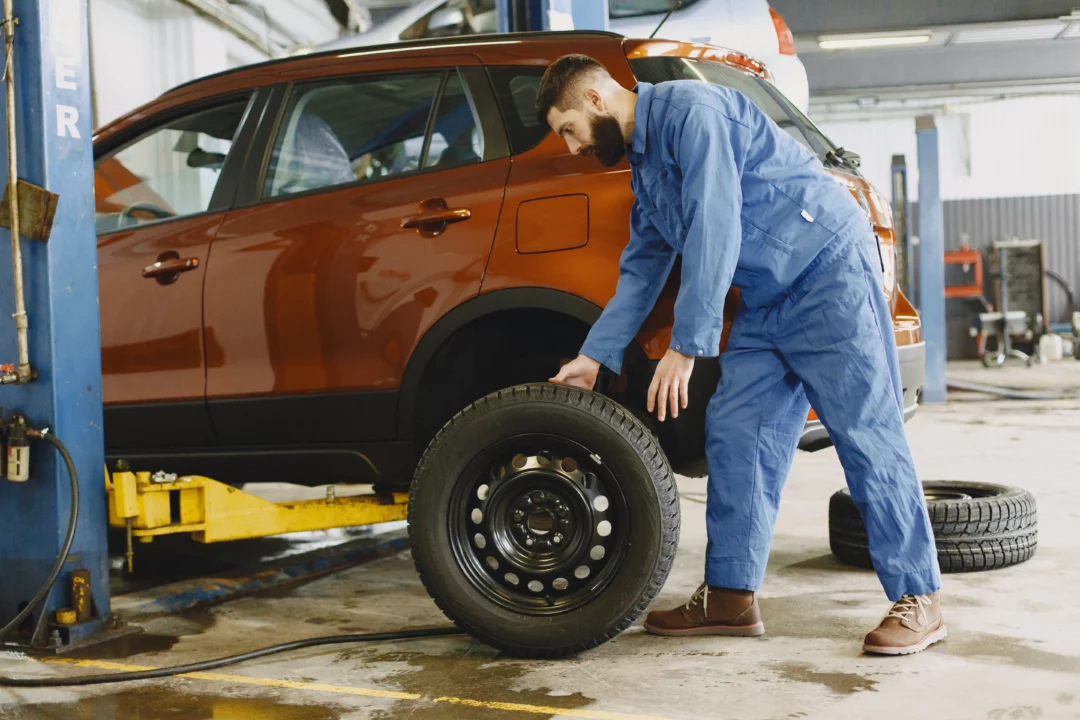
If you’ve purchased a car in California that keeps breaking down or has persistent issues, you might be wondering about your rights. The good news is that California has strong consumer protection laws, including the Lemon Law Buyback Law. This law can help you if you’ve unknowingly bought a “lemon” – a vehicle with significant defects that the manufacturer can’t seem to fix.
The Lemon Law Buyback process in California is designed to protect car buyers like you. It allows consumers who have purchased vehicles with serious, recurring problems to potentially receive a refund or replacement from the manufacturer. This law has been helping Californians since 1985, providing a safety net for those stuck with problematic vehicles.
But what exactly makes a car a “lemon”? Generally, it’s a vehicle that has been taken in for repairs multiple times for the same issue or has been out of service for an extended period due to repairs. The specific criteria can vary, but factors like the number of repair attempts, the nature of the defect, and how it affects the vehicle’s use, value, or safety are all considered.
Think you’re entitled to a Lemon Law Buyback? Call now for a FREE Consultation and Case Evaluation!
The Lemon Law Buyback Process
Understanding the lemon law buyback process in California is crucial if you believe you’ve purchased a defective vehicle. Here’s an overview of how it typically works:
- Identify the Issue: First, document all problems you’re experiencing with your vehicle. Keep detailed records of each repair attempt, including dates and descriptions of the issues.
- Notify the Manufacturer: Inform the manufacturer about the recurring problems. Most vehicles come with information on how to contact the manufacturer for warranty service.
- Allow Reasonable Repair Attempts: The law requires that you give the manufacturer a reasonable number of attempts to fix the issue. This usually means at least two attempts for serious safety defects, or four attempts for other significant problems.
- File a Lemon Law Claim: If the manufacturer can’t fix the problem after reasonable attempts, you can file a lemon law claim. This is where contacting Consumer Action Law Group can be extremely helpful. We can guide you through the process and ensure your claim is properly filed.
- Negotiations: Once your claim is filed, negotiations with the manufacturer begin. The goal is to reach a fair settlement, which could be a buyback of your vehicle or a replacement with a comparable model.
- Buyback or Replacement: If your claim is successful, you’ll either receive a refund for your purchase (minus a usage fee based on the miles driven before the first repair attempt) or a replacement vehicle.
- Dispute Resolution: If an agreement can’t be reached, your case may go to arbitration or court. Having experienced legal representation can be crucial at this stage.
Remember, the lemon law buyback process can be complex, and manufacturers often have teams of lawyers on their side. That’s why it’s important to have knowledgeable legal support. At Consumer Action Law Group, we specialize in California lemon law cases and can help protect your rights throughout the buyback process.
If you’re struggling with a problematic vehicle and believe you might have a lemon law case, don’t hesitate to reach out. Contact Consumer Action Law Group for a free case evaluation, and let us help you navigate the lemon law buyback process in California.
Purchase Price and Refunds Under California’s Lemon Law
California’s Lemon Law is designed to protect consumers like you when you’ve purchased a vehicle that just doesn’t meet reasonable quality standards. If your vehicle qualifies as a “lemon,” you may be entitled to significant compensation. Here’s what you need to know about the financial aspects of the lemon law buyback process.
Full Refund Option
Under California’s Lemon Law, if your vehicle is deemed a lemon, you have the right to a full refund of your purchase price. This includes:
- The amount you paid for the vehicle
- Sales tax
- License and registration fees
- Other official fees
It’s important to note that the manufacturer may deduct a small amount for the miles you drove before the first repair attempt. This is called a “mileage offset,” but it typically doesn’t significantly reduce your refund.
Replacement Vehicle: Instead of a refund, you might opt for a replacement vehicle. In this case, the manufacturer should provide you with a new vehicle of the same or similar model, ensuring you don’t incur any additional costs.
Reimbursement for Expenses
You may also be eligible for reimbursement of related expenses such as:
- Towing charges
- Rental car costs
- Repair costs you paid out of pocket
Handling Remaining Loans
If you’re still making payments on your vehicle, don’t worry. The manufacturer is required to settle the remaining balance with your lender as part of the buyback process.
The lemon law buyback process in California is designed to make you whole financially, ensuring you don’t suffer economic losses due to a defective vehicle. However, navigating this process can be challenging, especially when dealing with manufacturers who may try to minimize their obligations.
When Does The Lemon Law Buyback Law Apply?
Understanding when California’s Lemon Law Buyback applies is crucial for consumers facing ongoing vehicle issues. Here’s a breakdown of when this law might come into play:
Timing and Warranty
The Lemon Law Buyback typically applies during the vehicle’s warranty period. However, it’s important to note that the law can extend beyond the original warranty in some cases. If you reported the issue while under warranty, you might still be covered even if the warranty has since expired.
Qualifying Issues
Not every car problem qualifies under the Lemon Law. The defect must substantially impair the vehicle’s use, value, or safety. Examples might include:
- Persistent brake problems
- Transmission failures
- Electrical system malfunctions
- Engine issues
Repair Attempts
The law comes into effect after a “reasonable number” of repair attempts. While this can vary based on the situation, generally it means:
- At least two attempts for issues that could cause serious injury or death
- At least four attempts for other significant problems
- The vehicle has been out of service for repairs for a total of 30 days or more (not necessarily consecutive)
New and Used Vehicles
While the law primarily focuses on new vehicles, it can apply to some used cars as well, particularly if they’re still under the original manufacturer’s warranty.
Leased Vehicles
Leased vehicles are also covered under California’s Lemon Law, provided they meet the other criteria.
Business Vehicles
Even if you use your vehicle for business purposes, you may be covered if the vehicle weighs less than 10,000 pounds and the business has five or fewer vehicles registered in California.
The lemon law buyback process isn’t automatic – you need to take action to assert your rights. If you believe your situation matches these criteria, it’s time to consider your options under the Lemon Law.
Is the Lemon Law Buyback Process Unique to California?
While California’s Lemon Law is known for being particularly strong, it’s important to understand that lemon laws exist in all 50 states. However, the specifics of the lemon law buyback process can vary significantly from state to state. Here’s what you need to know:
California’s Robust Protection
California’s Lemon Law is widely recognized as one of the most comprehensive and consumer-friendly in the nation. The lemon law buyback process in California offers strong protections for vehicle owners, often going beyond what other states provide.
Other States’ Lemon Laws
While other states have their own versions of lemon laws, they may not be as extensive as California’s. Some key differences can include:
- The number of repair attempts required before a vehicle is considered a lemon
- The timeframe in which these attempts must occur
- The types of vehicles covered (new, used, leased)
- The remedies available to consumers
Cross-State Purchases
If you purchased your vehicle in California, you’re generally covered by California’s Lemon Law, even if you’ve since moved to another state. However, if you bought your car in another state and now live in California, the situation can be more complex.
Out-of-State Residents
California’s law can sometimes apply to out-of-state residents if they purchased their vehicle from a California dealership. However, these cases can be more complicated and may require specialized legal knowledge.
Federal Protection
It’s worth noting that there’s also a federal law, the Magnuson-Moss Warranty Act, which provides some level of protection for consumers in all states. However, state lemon laws, especially California’s, often provide more comprehensive coverage.
Understanding which law applies to your situation is crucial for navigating the lemon law buyback process effectively. At Consumer Action Law Group, we specialize in California Lemon Law cases, but we’re also well-versed in how these laws interact across state lines.
How to Qualify for a Lemon Law Buyback
Once you’ve determined that your vehicle might qualify for a lemon law buyback, it’s important to understand the steps involved in the process. Here’s a guide to help you navigate this journey:
- Document Everything: Keep detailed records of all issues, repair attempts, and communications with the dealer or manufacturer. This documentation is crucial for building a strong case.
- Notify the Manufacturer: Inform the manufacturer in writing about the persistent issues with your vehicle. Many warranties require this formal notification.
- Allow for Repairs: Give the manufacturer a reasonable opportunity to repair the vehicle. Remember, the law typically requires at least two attempts for serious safety issues or four attempts for other significant problems.
- Gather Your Paperwork: Collect all relevant documents, including:
- Purchase or lease agreement
- Repair orders and receipts
- Correspondence with the dealer or manufacturer
- Consider Legal Assistance: The lemon law buyback process can be complex. Consulting with a law firm experienced in California Lemon Law cases, like Consumer Action Law Group, can significantly improve your chances of a favorable outcome.
- File a Claim: If the manufacturer fails to resolve the issue, it’s time to file a formal lemon law claim. This is where having legal representation can be particularly beneficial.
- Pursue Legal Action if Necessary: If a resolution can’t be reached through negotiation or arbitration, you may need to file a lawsuit. Your attorney can guide you through this process.
- Receive Your Buyback or Replacement: If successful, you’ll either receive a refund (minus a usage fee) or a replacement vehicle.
Remember, the lemon law buyback process is designed to protect consumers, but it can be challenging to navigate alone. Manufacturers often have teams of lawyers working to minimize their liability. That’s why having experienced legal support is crucial.
Registration Certificate and Vehicle History: Key Elements in the Lemon Law Buyback Process
When pursuing a lemon law buyback in California, two critical pieces of documentation play a significant role: your vehicle’s registration certificate and its history report. Understanding the importance of these documents can strengthen your case and streamline the buyback process.
Registration Certificate
Your vehicle’s registration certificate is a crucial document in the lemon law buyback process. Here’s why:
- Proof of Ownership: It establishes your legal ownership of the vehicle.
- California Residency: It demonstrates that the vehicle is registered in California, which is often a requirement for the state’s lemon law to apply.
- Timeline Verification: The registration date can help establish the timeline of your ownership, which is relevant to warranty coverage and the lemon law’s applicability.
Always keep your registration certificate in a safe place and have a copy readily available when pursuing a lemon law claim.
Vehicle History
A comprehensive vehicle history report can be invaluable during the lemon law buyback process:
- Repair Documentation: It provides a record of reported repairs, supporting your claim of persistent issues.
- Accident History: While not directly related to lemon law claims, accident history can be relevant if it impacts the vehicle’s performance or value.
- Ownership Timeline: It can corroborate your ownership period, which is crucial for warranty and lemon law considerations.
- Mileage Verification: Accurate mileage records are essential, especially if there’s a dispute about the vehicle’s usage.
Obtaining a Vehicle History Report
You can get a vehicle history report from various sources, including:
While these reports can be helpful, remember that they may not capture every repair, especially if work was done outside of dealerships or authorized service centers.
Leveraging These Documents
During the lemon law buyback process, your registration certificate and vehicle history can:
- Help establish the timeline of issues and repair attempts
- Prove your compliance with registration requirements
- Support your case for why your vehicle qualifies as a lemon
Can I get a Replacement Vehicle if I have a Lemon?
Many consumers wonder about their options when dealing with a lemon vehicle. One common question is whether you can get a replacement vehicle instead of a refund. The answer is yes, it’s possible, and here’s what you need to know about this aspect of the lemon law buyback process.
Replacement Option
California’s Lemon Law provides two primary remedies for consumers with qualifying vehicles: a buyback (refund) or a replacement. While many people focus on the buyback option, requesting a replacement vehicle is a valid alternative.
How It Works
If you choose a replacement:
- The manufacturer must provide a new vehicle that’s substantially identical to your original purchase.
- This includes all originally agreed-upon options and service contracts.
- You shouldn’t incur any additional costs, except for a possible mileage offset.
Manufacturer’s Discretion
While you can request a replacement, it’s important to note that the final decision often lies with the manufacturer. They may prefer to offer a refund instead, especially if:
- The exact model is no longer in production
- There have been significant changes to the model since your original purchase
- Inventory issues make a replacement difficult
Negotiating for a Replacement
If you prefer a replacement over a refund, it’s crucial to make this clear during the lemon law buyback process. Having experienced legal representation can be particularly helpful in these negotiations.
Considerations
Before opting for a replacement, consider:
- Whether you’re confident in the brand after your experience
- If a newer model might have resolved the issues you experienced
- Whether your needs have changed since the original purchase
Refund vs. Replacement
While a replacement might seem appealing, in some cases, a refund might be more advantageous. It gives you the freedom to choose a different vehicle or brand altogether.
Understanding California Lemon Laws vs. Federal Lemon Laws

When navigating the lemon law buyback process, it’s crucial to understand the differences between California’s lemon laws and federal lemon laws. Both offer consumer protection, but they differ in several key aspects.
Scope of Coverage
California Lemon Law:
- Applies specifically to vehicles purchased or leased in California
- Covers new and some used vehicles still under the original manufacturer’s warranty
- Includes personal, family, and some business vehicles under 10,000 pounds
Federal Lemon Law (Magnuson-Moss Warranty Act):
- Applies to all states
- Covers a broader range of consumer products, not just vehicles
- Focuses on enforcing warranties on consumer products
Timeframe and Repair Attempts:
California Lemon Law:
- Generally applies during the vehicle’s warranty period
- Typically requires 2-4 repair attempts or 30 cumulative days out of service
Federal Lemon Law:
- Can apply beyond the warranty period in some cases
- Doesn’t specify a set number of repair attempts, focusing instead on “reasonable” attempts
Remedies:
California Lemon Law:
- Offers specific remedies: replacement or refund (minus a usage fee)
- Often provides for civil penalties against manufacturers who willfully violate the law
Federal Lemon Law:
- Focuses on enforcing the terms of the warranty
- May result in repair, replacement, or refund, depending on the situation
Burden of Proof:
California Lemon Law:
- Places a lower burden of proof on consumers
- Presumes a vehicle is a lemon if it meets certain criteria
Federal Lemon Law:
- Generally requires consumers to prove that the warranty was breached
Attorney Fees:
California Lemon Law:
- Provides for the manufacturer to pay the consumer’s attorney fees if the consumer prevails
Federal Lemon Law:
- Also allows for recovery of attorney fees, but the process can be more complex
Why This Matters in the Lemon Law Buyback Process
Understanding these differences is crucial when pursuing a lemon law claim. In many cases, California’s law offers stronger protections and a more straightforward path to resolution. However, there may be situations where federal law provides additional options or protections.
Understanding Lemons vs. Defective Vehicles in the Lemon Law Buyback Process
When pursuing a lemon law claim, it’s crucial to understand the distinction between a “lemon” and a merely defective vehicle. This difference can significantly impact your rights and the potential outcomes of the lemon law buyback process.
Defining a Lemon:
A “lemon” is a vehicle with substantial defects that:
- Significantly impair its use, value, or safety
- Persist despite multiple repair attempts by the manufacturer or dealer
- Occur within a specific timeframe or mileage (usually within the warranty period)
Key characteristics of a lemon:
- Repeated failed repair attempts for the same issue
- Extended time out of service due to repairs
- Problems that started early in the vehicle’s life
Defining a Defective Vehicle:
A defective vehicle may have:
- Minor issues that don’t substantially impact use, value, or safety
- Problems that can be fixed with one or two repair attempts
- Defects that occur outside the warranty period or after extended use
The Crucial Differences:
- Severity of the Problem:
- Lemons have serious, persistent issues
- Defective vehicles may have minor or isolated problems
- Impact on Vehicle Use:
- Lemons significantly impair the vehicle’s use, value, or safety
- Defective vehicles may have issues that don’t substantially affect overall functionality
- Repair History:
- Lemons have a history of failed repair attempts
- Defective vehicles might be fixable with fewer attempts
- Legal Protections:
- Lemons are covered under specific lemon laws, offering strong consumer protections
- Defective vehicles may be covered under general warranty laws but might not qualify for lemon law remedies
Why This Matters in the Lemon Law Buyback Process
Understanding whether your vehicle qualifies as a lemon is crucial because:
- It determines your eligibility for lemon law protections
- It affects the remedies available to you (buyback, replacement, or repairs)
- It influences the strength of your case in negotiations with the manufacturer
Navigating Your Rights in the Lemon Law Buyback Process
Dealing with a defective vehicle can be frustrating, time-consuming, and costly. However, California’s Lemon Law provides a powerful tool for consumers to seek justice and compensation. Let’s recap the key points to remember about the lemon law buyback process:
- Protection for Consumers: The California Lemon Law is designed to protect you from bearing the burden of a severely defective vehicle.
- Qualifying Criteria: Your vehicle may be considered a lemon if it has substantial defects that persist despite multiple repair attempts or extended time in the shop.
- Remedies Available: If your vehicle qualifies, you may be entitled to a buyback (refund) or a replacement vehicle from the manufacturer.
- Documentation is Crucial: Keep detailed records of all repairs, communications with the dealer or manufacturer, and any time your vehicle is out of service.
- Timeframe Matters: While the law primarily applies during the warranty period, there can be exceptions. Don’t assume it’s too late to file a claim.
- Professional Guidance is Valuable: The lemon law buyback process can be complex, and manufacturers often have teams of lawyers on their side. Having experienced legal representation can level the playing field.
Taking Action:
If you believe you’ve purchased a lemon, don’t continue struggling with a defective vehicle. The lemon law buyback process is your path to resolution, but it requires proactive steps on your part:
- Assess Your Situation: Review your vehicle’s repair history and compare it to the lemon law criteria.
- Gather Documentation: Collect all relevant paperwork, including purchase documents, repair orders, and correspondence with the dealer or manufacturer.
- Seek Expert Advice: Consult with a law firm experienced in California Lemon Law cases. At Consumer Action Law Group, we offer free case evaluations to help you understand your rights and options.
- Act Promptly: While there’s no strict deadline for lemon law claims, it’s best to act as soon as you suspect you have a lemon.
Remember, you don’t have to face this challenge alone. The lemon law buyback process is designed to protect consumers like you, but navigating it effectively often requires expert guidance.
If you’re dealing with a potentially defective vehicle and want to explore your options under California’s Lemon Law, reach out to Consumer Action Law Group today. Our experienced team is ready to review your case, explain your rights, and guide you through every step of the lemon law buyback process.
Don’t let a lemon sour your driving experience. Contact us for a free consultation and take the first step towards resolving your vehicle issues and getting the compensation you deserve.












